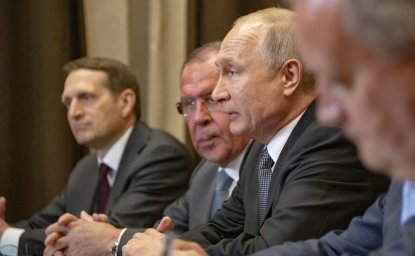If you want to know what military families—strapped financially and stretched emotionally by the long Iraq-Afghanistan deployment—most need, "ask us," said military spouses to the attendees of the Wilson Center's recent Military Families conference.
Their resolve and determination reminded me of the Gold Star Wives I learned about while researching my last book on the World War II Servicemen's Readjustment Act, more popularly known as the GI Bill. The government restricted the GI Bill's generous and widely celebrated benefits to only those honorably discharged from the Armed Forces, excluding many deserving potential beneficiaries such as members of the Coast Guard, who policed treacherous waters off the U.S. coast during the war.
Gold Star Wives, an organization of widows of World War II service members, believed that Congress should expand the group of beneficiaries to include them. Their claim had precedent: so-called "widows and orphans" pensions, paid to the immediate family after the loss of a male breadwinner, had an established place in federal benefits to veterans, and a newer but widely accepted place in state benefits to dependents (which would eventually become Aid to Families with Dependent Children, or AFDC).
As with other requests to expand the pool of recipients of the GI Bill, Congress rejected the appeal of the Gold Star Wives. Today we cannot afford to act so hastily. If the country continues to rely upon an all-volunteer force, then this force structure will impose punishing burdens on soldiers and their families during episodes of prolonged deployment.
As one conference attendee noted, a family can piece together makeshift survival strategies for a year, perhaps two. But not nine. We need service-wide consistency and sustained support for our military families, and readjustment efforts that acknowledge and inform entire households, not just individual soldiers returning home.
It was with some considerable patriarchal disdain that Congress heard the articulate and impassioned testimony of the World War II Gold Star Wives. Let us hope the era of derision has passed. Let us hope, too, that the implications of the all-volunteer force are universally considered; service from a select number does not mean the challenges facing the military are sequestered from the wider world of public policy. As I noted at the conference, we, as Americans, are the force we send, the fights we choose, and the favors we bestow.
Explore More
Browse Insights & Analysis
Wilson Center Fellows on the 2026 State of the Union Address


